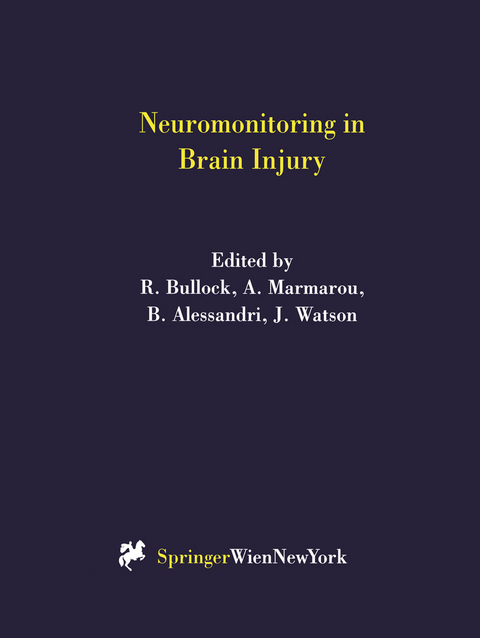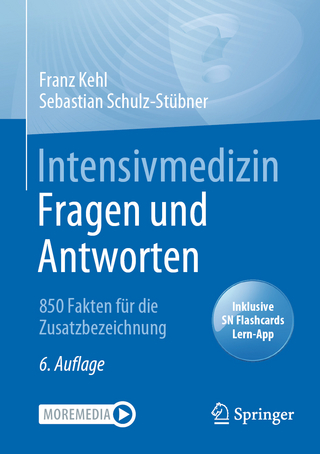
Neuromonitoring in Brain Injury
Springer Wien (Verlag)
978-3-211-83379-7 (ISBN)
Theory and Practice of Microdialysis - Prospect for Future Clinical Use.- Unbound Plasma Concentrations May Predict Neuroprotective Brain Concentrations: A Brain Microdialysis and Pharmacokinetic Study of Enadoline in Rats.- Intraoperative Enzyme-Amperometric Monitoring of Extracellular Glutamate Concentration with a Dialysis Electrode in Ischemic Human Brain.- CSF and ECF Glutamate Concentrations in Elead Injured Patients.- Glucose and Lactate Metabolism after Severe Human Head Injury: Influence of Excitatory Neurotransmitters and Injury Type.- Evidence for Time-Dependent Glutamate-Mediated Glycolysis in Head-Injured Patients: A Microdialysis Study.- Determinants of Cerebral Extracellular Potassium After Severe Human Head Injury.- Simultaneous Measurement of Cortical Potassium, Calcium, and Magnesium Levels Measured in Head Injured Patients Using Microdialysis with Ion Chromatography.- What Does Measurement of Brain Tissue pO2, pCO2 & pH Add to Neuromonitoring?.- Effect of Hypocapnea on CBF and Extracellular Intermediates of Secondary Brain Injury.- Continuous Monitoring of Cerebrospinal Fluid Acid-Base Balance and Oxygen Metabolism in Patients with Severe Head Injury: Pathophysiology and Treatments for Cerebral Acidosis and Ischemia.- Monitoring by Subcutaneous Microdialysis in Neurosurgical Intensive Care.- Brain Viability and Function Analyzer: Multiparametric Real-Time Monitoring in Neurosurgical Patients.- Importance of Metabolic Monitoring Systems as an Early Prognostic Indicator in Severe Head Injured Patients.- Author Index.- Index of Keywords.
"... can be recommended for further reading." British Journal of Neurosurgery, 2000/14 (6) " ... Ein wichtiges Buch für den Spezialisten." Der Nervenarzt 4/2000 "... Those who want to be among the first to acquire these techniques, will find this abstract book a valuable guide." Acta Neurologica Belgica 3/2000
"... can be recommended for further reading." British Journal of Neurosurgery, 2000/14 (6)
" ... Ein wichtiges Buch für den Spezialisten." Der Nervenarzt 4/2000
"... Those who want to be among the first to acquire these techniques, will find this abstract book a valuable guide.” Acta Neurologica Belgica 3/2000
| Erscheint lt. Verlag | 22.11.1999 |
|---|---|
| Reihe/Serie | Acta Neurochirurgica Supplement |
| Zusatzinfo | VIII, 71 p. |
| Verlagsort | Vienna |
| Sprache | englisch |
| Maße | 210 x 279 mm |
| Gewicht | 524 g |
| Themenwelt | Medizinische Fachgebiete ► Chirurgie ► Neurochirurgie |
| Schlagworte | adenosine • Amino acid • Brain Injury • Calcium • Gehirn • Glutamat • Metabolism • Microdialysis • Micro-sensors • Neurochemical Monitoring • Neuromonitoring • Neuroprotection • Physiology |
| ISBN-10 | 3-211-83379-X / 321183379X |
| ISBN-13 | 978-3-211-83379-7 / 9783211833797 |
| Zustand | Neuware |
| Informationen gemäß Produktsicherheitsverordnung (GPSR) | |
| Haben Sie eine Frage zum Produkt? |
aus dem Bereich


